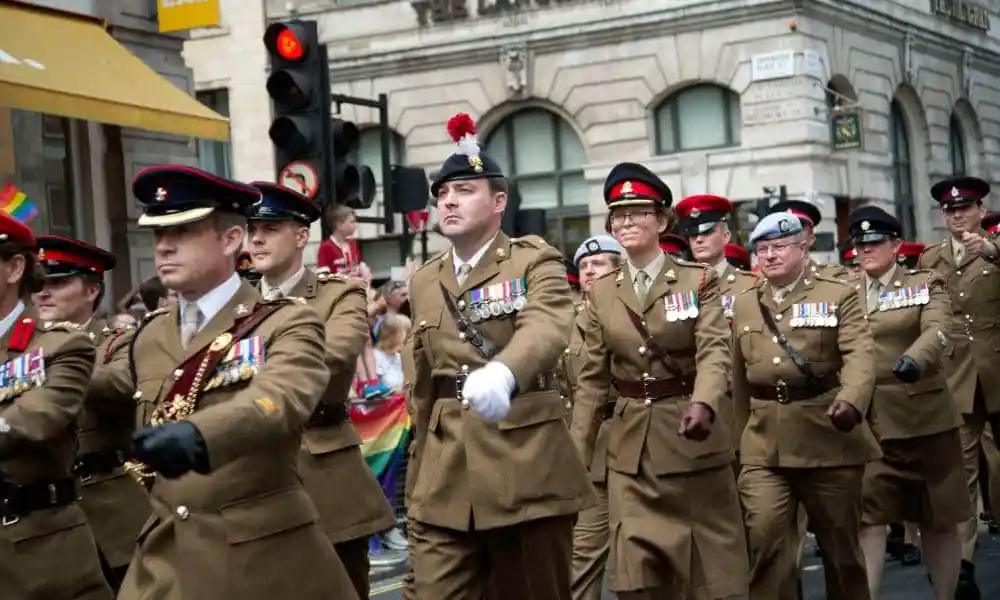UK Government Reverse Plans to Cancel Debate on Gay Military Ban Following Backlash
Sign up for more LGBTQ+ news and updates at TrueQueer.
A parliamentary debate on the treatment of veterans affected by the “gay military ban” is set to be held in the new year, as the government reverses its plans to cancel the discussion. The debate aims to address the issue of reparations owed to military veterans who were forced out of the armed forces due to their sexual orientation.
For many years, until 2000, LGBTQ+ individuals were prohibited from serving in the British military. This ban led to widespread homophobic abuse, harassment, and discrimination, resulting in numerous veterans being wrongfully expelled from service and left without stable income or pensions.
In July, an independent review into the ban and its consequences was published, incorporating testimonies from thousands of veterans who recounted instances of bullying, violence, sexual assault, and the inability to claim their pensions. In response, then-Defence Secretary Ben Wallace promised a parliamentary debate to discuss how best to provide reparations to these wronged veterans.
However, earlier this month, the government faced significant backlash from military charities when it was revealed that the debate was being scrapped and replaced with a statement. Organizations like Fighting With Pride expressed their disappointment at the government’s “unacceptable act of erasure,” while RAF veteran David Bonney, who was imprisoned for being gay in 1995, suggested that “homophobes must have the ear of the prime minister.”
Fortunately, it seems that the government has now backtracked on its decision to cancel the debate. BBC News reports that it is scheduled to take place in 2024, and veterans affected by the gay military ban can now register their interest in applying for reparative schemes. Although some restorative measures are already available, details about financial compensation will be made available in the new year.
Defence Secretary Grant Shapps commented on the independent review, stating that the government is committed to “righting the wrongs of the past.” He acknowledged that the treatment of LGBTQ+ personnel between 1967 and 2000 was unacceptable and emphasized the government’s efforts to rectify this regrettable chapter in the history of the armed forces.
However, while the government has indicated that it cannot “write a blank cheque,” military charities and advocacy groups are calling for the removal of the current £50 million cap on the total fund for veterans. In an open letter signed by groups like The Royal British Legion and Help for Heroes, they expressed their concern about the arbitrary limit on compensation, arguing that those who served the country and were subsequently subjected to criminalization, loss of earnings, pensions, and abuse deserve recognition and compensation for the harm they endured.
The debate on reparations for LGBTQ+ veterans is a crucial step in addressing the injustices they faced due to the gay military ban. It is an opportunity for the government to acknowledge and rectify the harm inflicted upon these individuals and to ensure that they receive the compensation they deserve. As the debate approaches in the new year, it remains to be seen how the government will respond to the demands for fair and just reparations for these veterans.
“Follow us on: Facebook for more LGBTQ+ news and updates at TrueQueer.”
“UK Government reverse plans on gay military ban debate”
![]()

